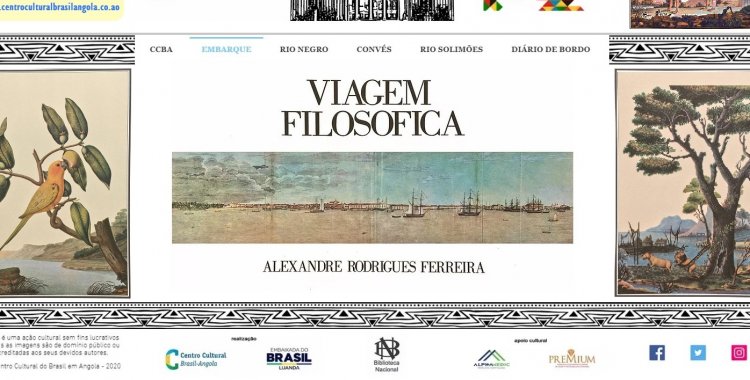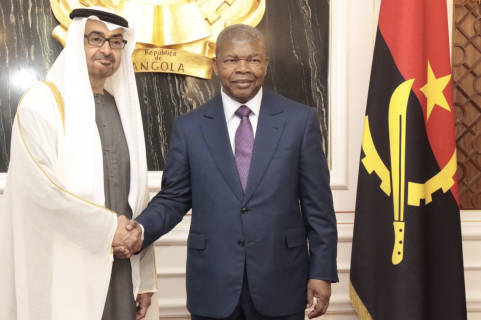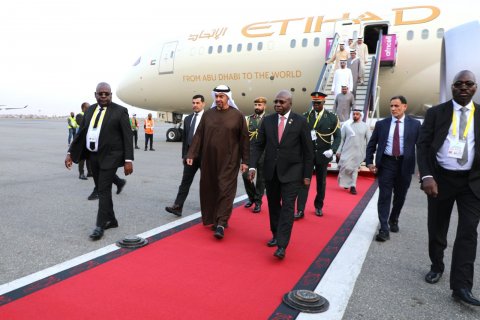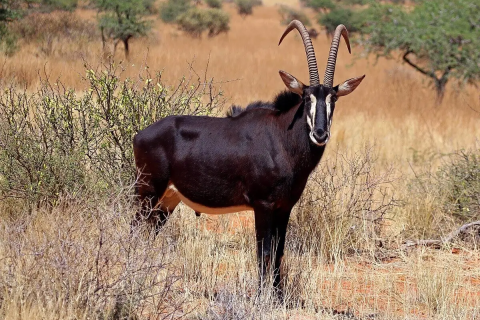The head of the cultural sector of the Brazilian embassy in Angola, Sérgio Toledo, explained this Tuesday that the objective of the exhibition was to reopen, in a virtual way, the Centro Cultural Brasil-Angola (CCBA), since March closed to the public because of covid-19, telling the story of one of the first scientific expeditions to the Amazon, during which 23 thousand articles were collected, later catalogued in Portugal.
The expedition, financed by the Portuguese Crown, took place at a time when Brazil was suffering incursions from other powers in the then colony, especially the British, and it was therefore important to map the territory and increase scientific knowledge, explained to Lusa the curator of the exhibition, the artist Klaus Novais.
This was not the only one of the "philosophical journeys", ordered by Queen Maria I, who also sent missions to Angola, Mozambique, Goa and Cape Verde.
Born in Salvador, Bahia, on April 27, 1756, Alexandre Rodrigues Ferreira, son of Portuguese merchants, graduated in Coimbra from the Faculty of Natural Philosophy and was chosen to undertake the "philosophical journey" that left the island of Marajó (Pará) on October 21, 1783 and arrived in Cuiabá (Mato Grosso) nine years later.
During this period, the naturalist, accompanied by two 'scratchers', as the designers of the time were nicknamed, and a botanical gardener, traveled all along the Amazon River, arrived at the border of Venezuela and Peru, having collected more than 23,000 pieces that were later transported to Portugal to be catalogued.
The collection included embalmed animals, samples of plants and seeds, minerals, indigenous artifacts, weapons, illustrations and prints that portray the Amazonian reality in the Age of Enlightenment.
On his return to Portugal, Alexandre Rodrigues Ferreira settled in Palácio da Ajuda and spent years cataloguing the collection, which, however, never received the proper recognition and became semi forgotten.
"The estate was dispersed," says Klaus Novais. Part remained in Portugal, part was taken to Brazil, where the Portuguese Court found refuge from Napoleonic troops from 1808, and other pieces are in France.
The curator points out that although the main objective was to increase knowledge about geography, fauna and flora, Alexandre Rodrigues Ferreira also ended up doing an anthropological portrait of indigenous peoples and returned to Portugal "very touched" by his experience of almost a decade in the jungle.
The exhibition includes illustrations and prints that show in detail the local fauna and flora, landscapes, villages and the culture of indigenous peoples in the eyes of the designers who accompanied Alexandre Rodrigues Ferreira.
The National Library Foundation holds the works in digital collection, having published in the 1970s the reproductions that are part of the CCBA's collection and are exhibited for the first time in the institution.
The initiative also marks the five years of CCBA in the new headquarters, a rehabilitated building dating from the early twentieth century that was formerly the Grand Hotel of Luanda.
The exhibition, which opened on September 7th, Independence Day of Brazil, will be online for at least a month and will then migrate to the portal where the collections of the various cultural centers are made available.













